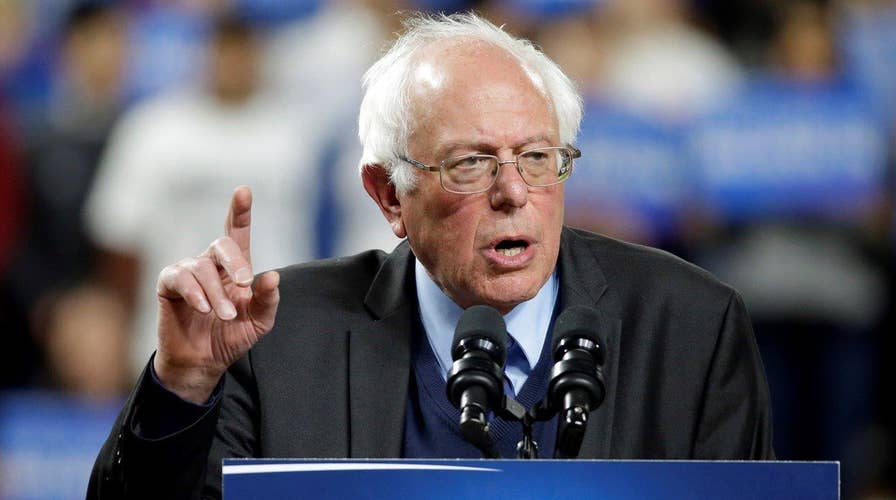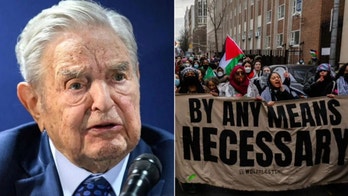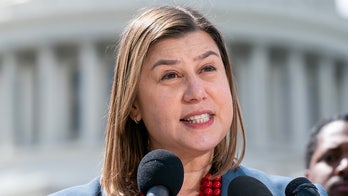Sanders eyes Wisconsin after Saturday sweep
Strategy Room: Washington Examiner's Gabby Morrongiello analyzes the Democratic race
Bernie Sanders, despite facing persistently long odds to overtake Hillary Clinton in the Democratic primary delegate battle, quickly is moving to build on his momentum from a weekend caucus sweep -- looking to take the fight to the front-runner in New York, Wisconsin and beyond.
The next contest up is the April 5 Wisconsin primary, where Sanders will be hoping for another Michigan-style upset, despite a disappointing finish in other recent Midwestern primaries.
Sanders plans to kick off a two-day swing through the state on Tuesday; Clinton was campaigning there Monday, after holding a Chicago fundraiser.
But the much bigger prize is New York, which votes April 19.
“We are making a big commitment to New York state,” Sanders campaign manager Jeff Weaver said on a conference call Monday, noting the Vermont senator was born there -- though Clinton represented the delegate-rich state in the Senate.
The campaign escalated its battle for New York over the weekend, renewing calls for a debate in the Empire State. On Monday, Weaver said the campaign was “disappointed” Clinton’s team has yet to agree.
Meanwhile, Weaver claimed grassroots fundraising has collected another $4 million since Saturday’s caucus victories which he said would “give us the resources to compete in Wisconsin.”
Sanders, despite his success over the weekend in Washington state and other contests, nevertheless faces the same reality he did a week earlier. Clinton maintains a comfortable lead in pledged delegates. And when superdelegates, or party insiders who can back whomever they want, are factored in, the former secretary of state is pulling within sight of clinching the nomination.
Speaking with The Washington Post, Clinton campaign chairman John Podesta said they “intend to win this thing with a majority of pledged delegates” and -- amid signs that the Sanders campaign may crank up its attacks -- said the senator will have to decide “what kind of campaign he wants to run.”
The latest delegate count shows Clinton with a grand total of 1,712 and Sanders with 1,004.
In terms of pledged delegates only, Clinton has 1,243 to Sanders’ 975. It takes 2,383 to clinch the nomination.
Sanders’ best shot may be to close the pledged delegate gap just enough to try to persuade superdelegates to switch allegiances – a strategy he hinted at Sunday.
Speaking with CNN’s “State of the Union,” Sanders claimed “the momentum is with us” and “a lot of these superdelegates may rethink their position with Hillary Clinton.”
Sanders senior strategist Tad Devine said Monday that there is ongoing communication with superdelegates, though he wouldn’t give names. He claimed “dozens” have committed to Sanders but have yet to go public.
Sanders still would need an incredible surge to get to that point. He notched three convincing, double-digit victories on Saturday in Washington state, Hawaii and Alaska. The wins helped him close the delegate gap by at least three dozen, with more delegates from the states still to be allocated.
But continuing the momentum in Wisconsin and then New York would be critical to have a shot in the next big round of contests in late April, when several Eastern states will be voting.
His campaign got a dose of positive news Monday regarding the June 7 primary in California.
A USC Dornsife/LA Times poll showed Clinton leading Sanders 45-37 percent – representing a much tighter race than it was last September, when Clinton led 42-26 percent.
The poll of 1,500 voters was conducted March 16-23, and had a margin of error of 2.8 percentage points.
On Monday, Devine said despite the campaign’s losses in a streak of contests earlier this month, “We expect to compete in every single state to the end.”
FoxNews.com’s Joseph Weber contributed to this report.





